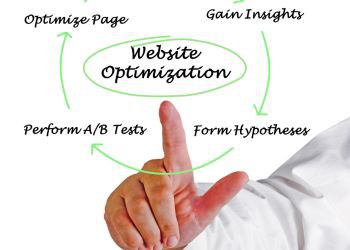In this article, you're going to learn about the three biggest reasons why your website is slow and how you can go about fixing it.
Let's begin
1. Bad hosting.
There are loads of web hosting companies nowadays, and choosing the best one for your business is not always easy. There may be some big web hosts that come to mind when someone asks you if you know any good hosting companies, but popularity doesn't always translate to speed.
To make sure you're getting the best bang for your buck, you need to do some research. If you're subscribed to the cheapest shared hosting plan, then maybe it's time for an upgrade. In the web hosting world, you do get what you pay for.
The more expensive the plan, the better the resources allocated to your site.
But of course, if you only get a few 100 or a few thousand visitors a day, then it may be overkill to go to the most expensive hosting plan. Analyze your website's needs and choose a plan that will be cost effective and won't hurt your website's loading times.
2. Optimized Images.
Image compression is not something many people bother with, after all. It can get annoying to have to spend some time resizing and optimizing every image you'll upload to your site. However, the harsh truth is if you want your pages to load quickly, you need to look into optimizing your images.
There are a bunch of tools you can choose from, both free and premium. Some even offer batch resizing. If you're in need of a good free tool, then head over to Tiny Ping tinyping.com or pick resize, pick resize.com
3. Code Quality Issues.
Your website is basically just a bunch of codes put together. When someone visits your site, their browser has to load your site's HTML, style sheets, JavaScript, etc. If any of these codes don't play well with each other then it can affect your website's speed.
Minifying your code is 1 way to reduce code clutter. It helps you improve your page speed too. Another option is called G Zip. It reduces your web pages weight which leads to faster loading pages.
If you're on WordPress, don't go plug in happy and install all cool plugins you find. This only increases the risk of plugins conflicting with each other and eventually causing problems to your site. Excessive white spaces, inline styling, empty new lines, and unnecessary comments can make the website style sheet grow larger in size.
Bottom Line.
Pay attention to these three items to understand why your website is slow and how you can go about fixing it. Join our strategic growth network for more tips and strategies for improving your infrastructure as a digital publisher.
